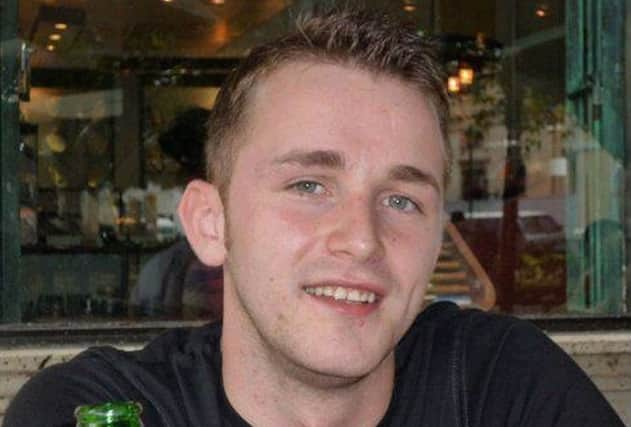Leaders: Scot deaths abroad should be investigated


At the very least it would bring the country into line with England, where coroners can investigate such deaths during inquests.
Julie Love, from Maryhill, whose son Colin died abroad, has made a number of very strong points in favour of the law being changed in this regard.
Advertisement
Hide AdAdvertisement
Hide AdColin, a very strong swimmer, was on a cruise in Venezuela in 2009 and, during a visit to Margarita Island, drowned while swimming. Shortly afterwards, it was revealed the beach had a notorious undertow and that there had been no warning signs in place or lifeguards on duty. There had been a number of previous swimming deaths there.
Ms Love has said that an investigation into Colin’s death by the Scottish authorities might have prompted the Venezuelan authorities to do something about the dangerous beach.
In Scotland, some 14,000 deaths are reported every year and about half of them are investigated by the procurator-fiscal as part of the work of the Crown Office and Procurator Fiscal Service. In practice, the need for a judicial investigation comes in only a tiny fraction of those.
But there are significant obstacles to broadening fatal accident inquiries (FAIs) out in to deaths abroad, one of the most significant being it is impossible to compel foreign witnesses to appear to give evidence.
And Police Scotland’s fears about being dragged into costly and prolonged investigations in far-flung places have some merit. The government needs to make it clear that if it sees value in extending FAIs in this manner, then it would come at a cost, and that cost is not one Police Scotland believes it can bear.
Under the current proposals, any sudden, suspicious or unexplained deaths that occur abroad could be subject to an FAI at the discretion of the Lord Advocate.
But the government seems to believe prosecutors and the local investigators would be able to handle the inquiry without the need of Police Scotland.
Regardless of exactly where such a burden would fall, it would seem that there is a case for widening the scope of Scottish FAIs.
Advertisement
Hide AdAdvertisement
Hide AdThere will always be doubts about how it would work without sending policemen. Foreign countries, especially those very dependent on tourism, will probably not, naturally, want to give up any evidence that might damage trade.
And then, once an inquiry has taken place, there is nothing that can force the country in which the death took place to alter its laws or customs to take findings into account.
But even with these weaknesses, for the sake of the families, such legislation should be brought in. England manages to find a way to make it work.
A shocking indictment
Save the Children’s annual State of the World’s Mothers report makes for some sobering reading. And it is not just the fact that once again the UK has failed to make it into the top ten countries across the world, which it really should be doing.
Even if you don’t think much of league tables, particularly in complex areas such as this, the finding that women in the UK are more than twice as likely to die in pregnancy and childbirth as those in Poland, Austria or Belarus has got to be of concern.
As has the fact that a child born in the UK is more than twice as likely to die before the age of five as a child in Iceland or Luxembourg.
So there are some targets for areas for improvement for us. But there is also a terrible irony contained in the Save the Children report. It found the UK figures were adversely affected by poorer access to healthcare, especially in some ethnic minority communities and among asylum seekers. This means people who have come here looking for a better life are the ones being failed when it comes to a vital area of healthcare.
There will always be disparity between countries when it comes to healthcare and quality of life, because there will always be disparity between how wealthy countries are. And there will always be disparity between individuals when it comes to wealth, but the question for society is just how wide is it willing to allow that divide to be.
Advertisement
Hide AdAdvertisement
Hide AdBecause not only are the worst countries for mothers some of the poorest on the planet, the report found the health differences between the rich and the poor in many countries were actually increasing. That has to be an indictment of us all.